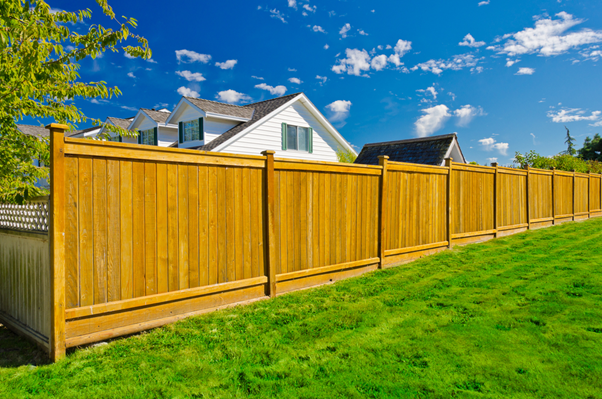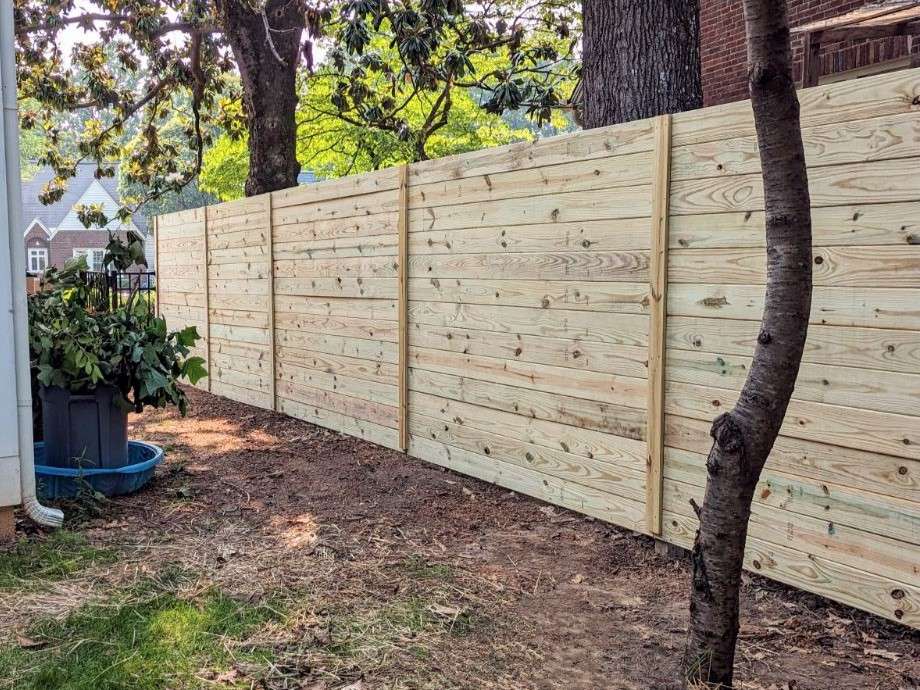All Categories
Featured

Selecting the appropriate fence material for your building is a choice that balances appearances, capability, and budget plan. Amongst the most popular choices, wood, vinyl, and aluminum each offer distinct advantages and disadvantages. Understanding these can aid you make an educated selection that lines up with your requirements. Here's a failure of the advantages and disadvantages of these 3 typical fencing products.
Timber Secure Fencing. Timber fencing has actually been a timeless selection for property owners due to its all-natural charm and adaptability.
Pros:. Aesthetic Charm: Timber uses a warm and classic appearance that enhances a selection of architectural styles. Personalized: It can be painted, tarnished, or reduce into special styles to fit individual choices. Economical: Originally, wood fence can be a budget-friendly option contrasted to various other materials. Eco-Friendly: Wood is a sustainable resource and can be sustainably sourced. Disadvantages:. High Upkeep: Timber requires regular sealing, staining, or painting to avoid rot, insect damage, and weathering. Sturdiness Problems: Without proper treatment, timber can warp, fracture, or degeneration in time, especially in areas with high moisture. Shorter Life-span: A timber fence commonly lasts 10-20 years, depending upon the sort of timber and level of upkeep. Timber is excellent for those that value a conventional appearance and are willing to devote to its upkeep.
Vinyl Fence. Vinyl is a modern, low-maintenance secure fencing alternative that has grown in appeal in recent times.

Pros:. Low Maintenance: Plastic does not need paint, discoloration, or securing and can be quickly cleaned up with soap and water. Climate Resistant: It stands up to harsh weather without rotting, rusting, or bending. Lasting: Plastic fences can last 20-30 years with very little upkeep. Range of Styles: Readily available in lots of shades, layouts, and appearances, some plastic options simulate the look of timber. Disadvantages:. Greater Upfront Expense: Vinyl fencing can be much more pricey initially contrasted to timber. Brittleness in Winter: In extreme cold, vinyl might break or become weak. Minimal Repairs: Individual panels can be hard to replace, needing cautious matching to the existing fencing. Vinyl is ideal suited for homeowners looking for a long lasting, low-maintenance solution with modern-day aesthetics.
Light Weight Aluminum Fence. Light weight aluminum secure fencing is a resilient and lightweight choice, typically selected for its modern look and adaptability.
Pros:. Rust-Resistant: Aluminum doesn't corrosion, making it an exceptional option for damp or moist climates. Reduced Maintenance: Needs very little maintenance and is easy to tidy. Sturdy: While light-weight, aluminum is solid enough to stand up to many ecological problems. Lengthy Lifespan: Can last numerous decades without considerable wear or damage. Selection of Styles: Supplies a sleek and stylish look, frequently made use of for attractive or ornamental objectives. Cons:. Greater Price: The initial investment for light weight aluminum fence is more than wood or plastic. Less Personal privacy: Light weight aluminum fences are frequently designed with open pickets, making them much less effective for privacy. Prone to Damages: Although resilient, aluminum can be nicked by strong effects. Aluminum is perfect for those seeking an elegant, durable alternative that needs very little care.
Making the Right Option. Each secure fencing product-- vinyl, aluminum, and wood-- provides unique advantages and drawbacks. Your choice should depend upon your certain top priorities, such as budget plan, maintenance preferences, environment, and visual goals:
Pick wood if you like a standard look and don't mind routine upkeep. Go with vinyl if you want a low-maintenance, weather-resistant fence with contemporary appeal. Select aluminum if you focus on resilience, rust resistance, and a streamlined design. By considering these disadvantages and pros, you can select a fence material that enhances your building while meeting your useful demands.
Latest Posts
Open Exclusive Discounts with WyHy's Love My Credit report Union Rewards
Published Apr 21, 25
1 min read
A Preference of Activity at The Boogaloo Sports Bar & Grill
Published Apr 21, 25
1 min read
The Perfect Flooring for each Home
Published Apr 20, 25
1 min read